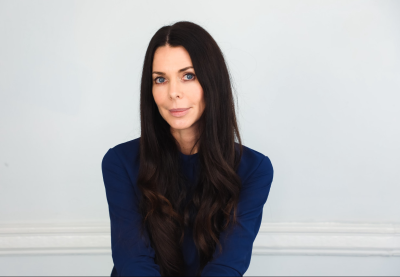talkhealth meets... Dr Anita Sturnham

Dr. Anita Sturnham is a leading voice in the world of skin and dermatology - particularly when it comes to caring for young skin.
Throughout her career, she has had a specific interest in making eczema-prone skin happy after have suffered with the condition as a child.
In this interview, she shares her top tips for managing little one's skin and what to do when you're dealing with a flare.
How did you first come to specialise in dermatology?
My interest in Dermatology started early on in my medical career where I was fortunate enough to work in a primary care setting that offered additional dermatology and minor surgery services and it was therefore part of my medical training curriculum. I quickly became fascinated with the specialism, completed further postgraduate Dermatology training and integrated dermatology into my ongoing medical practice.
You run a skin clinic, and have your own skincare line, why was being a founder important to your own journey?
I have always had an interest in skincare and formulating, having seen the impact that the products people use have on their skin’s health. My skincare line was inspired by many factors - my medical background, my patients and by identifying a clear gap in the market, that I identified through my years of treating my patients’ skin in the clinic.
In 2014, I founded my clinic brand, Nuriss, based in Marylebone, London. I would say that around 90% of the skin issues that I see in my clinics are self-inflicted, with the main culprits being the products that they use. Being a founder has allowed me to address the gaps in the market and to create what I wish existed. I have developed patient-focused treatment protocols, to help people to get their skin goals on track and a clinical skincare line to encourage people to use a simple and consistent regimen daily.
You have a strong focus on eczema-prone skin in children through your work with Childs Farm, why is this of specific interest?
I chose eczema as my area of specialist interest during my postgraduate dermatology studies and have therefore studied the pathophysiology, aetiology and treatments in depth. I suffered from atopic dermatitis as a child and remember how it felt to be marched to the doctors surgery and made to feel abnormal for having a severe flare on my skin. My three-year-old daughter also suffers from it too, so I am particularly passionate about helping children and adults to overcome the struggles that they often face when having eczema and sensitive skin.
As parents, what are the key things to consider when buying skincare for your children?
I recommend finding a brand that has been designed and tested for use on children’s skin. Ideally, you need to find a selection of products that you love and trust and that you can make a part of your child’s daily skincare routine. Keeping the routine simple and consistent is the key to having healthy skin.
Every parent needs a range of products for all eventualities. A body wash, bubble bath and moisturiser are three core products that I recommend. If your child has sensitive skin, you may prefer to use fragrance-free products or have a selection of more medical emollients to use as a soap substitute and moisturiser during sensitive skin days.
Are there any key ingredients that children's eczema-prone skin loves/doesn't love? Why?
Eczema prone skin loves ingredients that help to restore lipid levels in the skin barrier. Look for products with humectant ingredients, such as glycerin and hyaluronic acid, occlusive ingredients such as petrolatum, shea butter, squalane and jojoba and skin conditioning ingredients such as niacinamide, vitamin e and oat seed oil.
Eczema prone skin does not like harsh surfactants and cleansing products, astringent products containing alcohol, artificial colourants, synthetic fragrances, parabens and phthalates. These can deplete the skin’s natural moisturising lipids and cause irritation.
What are your top three tips for managing children's irritated skin?
1. Start treatment as quickly as possible - In my experience, the quicker the treatment is started the better the outcome.
2. Avoid the triggers - Stay away from stripping body washes, soap, fragranced moisturisers, synthetic materials in clothing and bedding and fragranced products.
3. Basic moisturisers are best - Use fragrance-free emollient moisturisers.
Information contained in this Articles page has been written by talkhealth based on available medical evidence. The content however should never be considered a substitute for medical advice. You should always seek medical advice before changing your treatment routine. talkhealth does not endorse any specific products, brands or treatments.
Information written by the talkhealth team
Last revised: 16 February 2024
Next review: 16 February 2027
